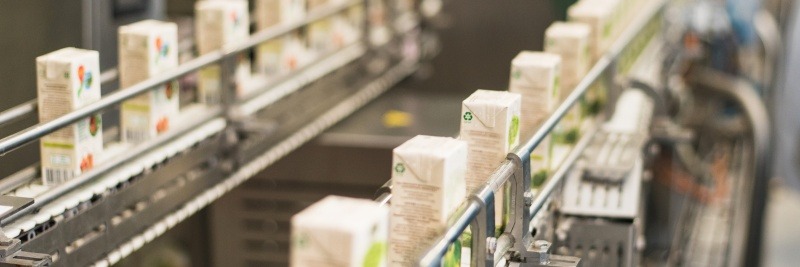Packaging innovation: Open Data Standard expanded to cover more materials
Open 3P initiative to improve packaging sustainability, by developing consistent methodology for classifying, reporting and sharing data extended to glass, metals, paper, fibre-based composites and wood.
The Open Data Standard for packaging data, has announced an expansion of its coverage to include all packaging materials. This significant development in packaging innovation, initially focused on plastic packaging data, now broadens its scope, representing a potentially important step towards comprehensive packaging sustainability.
Open 3P provides a shared framework to facilitate data exchange among stakeholders in the manufacturing, selling, and recycling of packaging materials, as well as with regulators and government agencies. The standard has a structured approach, breaking down data into various levels such as materials, components, complete packaging, and loads. This data is openly accessible across the industry, promoting transparency, regulatory compliance, and fostering collaborative innovation in the packaging industry.
 Adoption of the methodology has the potential to reduce the administrative burden on producers that, from 1st January this year, are required to report on the packaging they introduce to the market. It is intended that adoption of the standard will streamline data requests within the packaging supply chain.
Adoption of the methodology has the potential to reduce the administrative burden on producers that, from 1st January this year, are required to report on the packaging they introduce to the market. It is intended that adoption of the standard will streamline data requests within the packaging supply chain.
From 1st January this year, Extended Producer Responsibility legislation for packaging already requires organisations to report on the packaging they introduce to the market, the standard could significantly ease administrative tasks. Moreover, it can expedite and streamline typical data requests within the supply chain.
The Open 3P standard is the result of a collaborative initiative involving Dsposal, OPRL, Open Data Manchester, RECOUP, and Ecosurety with funding from UK Research and Innovation’s (UKRI) Smart Sustainable Plastics Packaging Challenge. Developed from contributions of more than 100 stakeholders, its purpose is to simplify the data handling in the packaging industry - for products ranging from soup cartons to sealant cartridges. Manufacturers, sellers, and recyclers are encouraged to share packaging data, which can help ensure compliance with existing and upcoming environmental regulations.
Highlighting the implications of this development, Julia Tait, CEO of Open Data Manchester, which has been developing the standard on behalf of the industry commented: “Open 3P provides a framework and a ‘common language’ to allow the packaging supply chain and its customers to share compatible packaging data easily, quickly, and cost effectively,” explains Julian Tait, CEO of Open Data Manchester, the independent, not-for-profit organisation that is developing the standard on behalf of the industry. “It doesn’t store information, it simply provides a consistent ‘recipe’ that everyone can follow in collating their packaging data.”
The Open 3P Data Standard has been designed to be flexible and user-friendly, with tiered layers of information. Users can start with a simple description of the packaging, such as its core material, and gradually add more detail as necessary or as additional information becomes available. This information can range from different barrier film layers and adhesives to components like plastic caps, sealing strips, nozzles, and ring pulls. Other key data categories include end-of-life management options and external identifiers such as product codes and chemical identifiers.
Colpac Ltd, a UK-based paperboard packaging firm, has contributed to the development of the extension of the Open 3P Data Standard and plans to integrate it into their operations. Colpac's Compliance and QA Manager, Frances Dickman, commented: "We've tested the prototype standard and have now progressed to full trials using data from our sustainable food packaging line.
“This will allow stakeholders across our packaging supply chain to easily collect and share detailed and regularly reviewed data… We hope the data standard will also support our customers as we continue to innovate with materials and packaging formats to increase the recyclability of our products.."
Adding to this, Luke Wilson, Compliance and Data Services Director at Ecosurety, said: "Data is the cornerstone to progress on more sustainable packaging. Aligned with ongoing packaging legislation reforms, the standard has the potential to support and accelerate wider change towards a UK circular economy."
The expansion of Open 3P aligns with the ongoing international negotiations on the Global Plastic Pollution Treaty, which aims to address the full life cycle of plastics, from design to production and disposal. Open 3P's broadened scope aligns well with the ambitions of this global initiative, contributing to the international commitment to reduce plastic pollution.
Details about the standard and implementation can be found on the Open 3P website and a free webinar Taking the Pain Out of Packaging Data organised by IOM3 will be taking place on 17th July 2023 for anyone who would like to learn more.







